Panellists on the Archive & Restoration Forum at Broadcast Tech Fest discuss the impact of the commissioning slowdown, tracking down the perfect piece of content and the use of AI
What are the current challenges in getting an archive documentary commissioned?
VIVIENNE STEELE (head of production, BriteSpark Films) It’s challenging on both sides of the Atlantic across all genres. But our experience at BriteSpark is that while maybe broadcasters aren’t taking the risks they were before, if they are confident it’s going to be audience-winning, then commissions are coming through. Budgets are being squeezed and the challenge is quite often that the archive is the first place you go to try to bring your budget down to tariff.
“Fantastic archive remains a huge selling point and very central to a lot of commissions”
Hamish Fergusson
HAMISH FERGUSSON (creative director, Passion Documentaries) As the industry feels generally suppressed, the good thing is that fantastic archive remains a huge selling point and central to a lot of commissions. But because it becomes key to selling the idea, and budgets squeeze what you can then do and how much archive you can use, you have to square that circle. Buyers are looking for more certainty, so the prospect of possibly getting your hands on some elusive lost tapes doesn’t sell any more.
How do you go about finding that perfect piece of content?
HF It tends to work best when somebody has already found a piece of marquee archive that helps underpin a project and sell it. Sometimes you come across these amazing reserves of knowledge among brilliant archive teams, but attaching that knowledge and pipeline of ideas to the development process is an art, and we’re trying to get better at it.
VS Our stories aren’t driven by archive. We very much use it as a tool for illustration or context. We had a commission about an important subject [the British black civil rights movement], but there was very little archive. However, we had the resources to hire an amazing archive producer who worked for six months digging for those elusive pieces of footage.
You also need to have a commissioner who is going to give you the resources to do that deep dig. The problem was when we did find those little snippets, the stakeholders knew how valuable they were, so they wanted to charge a lot of money for them.
Is there something that attracts you to using certain archives and teams?
VS If you have an archive-heavy project, then it’s great if you can do bulk deals. You want to try, if possible, to minimise your number of sources. But if you have a fast-turnaround project and everything isn’t digitised, that can cause issues. Sometimes you might pick an era where no one has got around to digitising the content.
Have you ever been costed out of a piece of content?
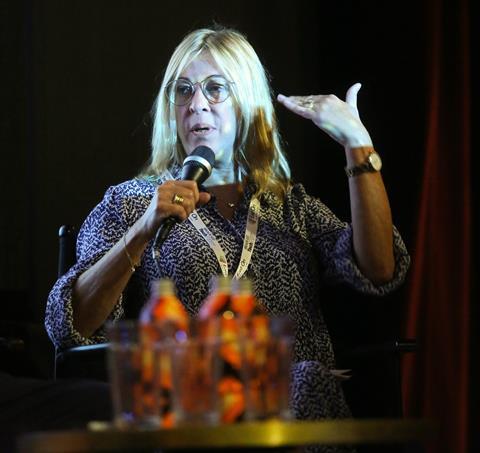
VS The most expensive archive I’ve ever had to deal with was when I was working on a feature doc called The Fall for Sky Atlantic, about the 1984 Olympics. The story was the Zola Budd and Mary Decker crash [in the 3,000 metres final] and it just so happened that the IOC didn’t hold the US rights for the 1984 Olympics – ABC did.
Plus, we were using a clip where David Coleman was doing the VO, for which rights were held by the BBC, the IOC and ABC. We tried to clear it internationally, which cost about £28,000 per 30 seconds. So that ended up being problematic.
HF You want to give editors the freedom to cut freely with everything they can possibly grab. But I’ve certainly had situations where you lose really key chunks of stuff. That can happen where you’re pulling archive from a very personal source, like a family or an individual that’s central to a story.
But what you sometimes find is that it’s almost like you’ve formed the clay around the balloon, and then if you have to pop the balloon, you’ve still got the structure. Sometimes you lose something that you’ve built around, and then if something else falls away, you find other ways to make it work. There’s always a solution.
How are things changing in the management, storage and digitising of archives? And do you have concerns about how archive companies might be using AI?
VS It’s early days for AI in content, because of the need for authenticity. If you have some old footage and you’re missing some frames, there’s a debate to be had [about using AI to fi ll the missing frames]. When you watch a current affairs show, you don’t expect archive footage to have been tampered with.
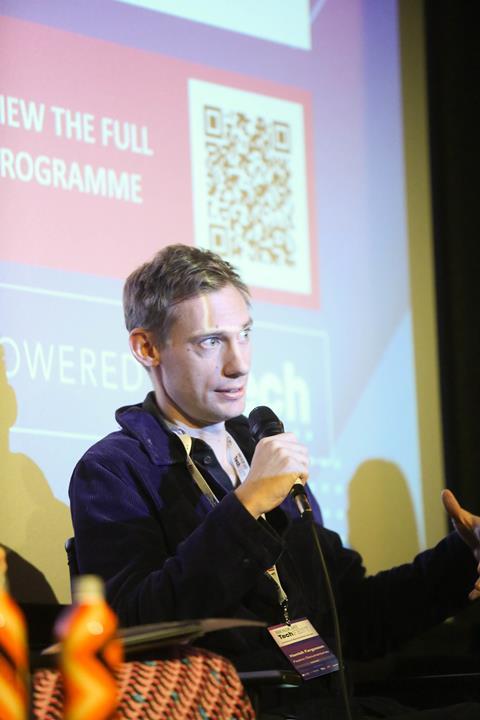
HF In the cataloguing world, you can allow machines to crawl across content that would take humans days, weeks or years to survey. Maybe I’m a Luddite, but nothing beats the human eye for spotting patterns, or a nose for the emotional value of content. I’m quite resistant to the idea that we could survive without human instinct being absolutely front and centre in that research process.
I’m also suspicious of the idea of extending archival footage with AI trickery. Not that I quite understand how it would work, but when reconstruction looks to approximate or extend archive, I’m always wary of that because I think in factual, we have this extraordinary thing, which is that it’s real. When people watch our content, they know it’s real. If you start to debase that, you start losing something very important.
So I’m suspicious, but then I’m sure I’ll be proved wrong and AI will change all our lives for the better. But it feels pretty scary to me.
How are you seeing the impact of the slowdown in commissioning?
HF Therein lies opportunity, especially when you’re talking about specialisms like archive, because what streamers are all asking for is just big ticket. If it’s history, it has to be big history. If it’s celebrity, it has to be Beckham. And that’s exciting in some ways. It’s tough, but it does mean there’s a lot of ambition behind projects that do get greenlit, and there’s a demand for creative renewal around major subjects, which is quite exciting.
What upcoming projects are you working on?
HF I’ve got a biopic about Superman star Christopher Reeve – it tells the story of him after his paralysis following the horse-riding accident, built largely on footage filmed by his son, who is also a film-maker. It was shot over many years and is an incredibly intimate, insider family portrait of a life that was catastrophically changed.
“You can get good focal length from relatively recent pop cultural history”
Hamish Fergusson
It’s cut against the really enjoyable and nostalgic story of his stardom and the very fi rst superhero movies. I love it when you can find universal stuff we all remember, whether it’s cultural history or big history, and you can cut it directly against intimacy in archive. People should be able to see it early next year.
When does an event become forgotten enough to be worth revisiting?
HF Now we’re in an era where there is decades and decades of quality archive. And there’s just so much within British national memory that feels well worth revisiting.
If there’s strong political value in telling a story, like the British black civil rights movement, then there are obvious motivations. Wham! did brilliantly on Netflix on both sides of the Atlantic recently, and although no one would say George Michael has been forgotten, there was something about the emergence of the group in a suburban slice of Britain that I found surprising.
“You sometimes think this is an absolute winner of an idea and it is the right time, and then you can’t get it away”
Vivienne Steele
You can get good focal length from relatively recent pop cultural history and find that it has been forgotten, or that there’s real pleasure in revisiting things like that.
VS It is so hit and miss. You sometimes think this is an absolute winner of an idea and it is the right time, and then you can’t get it away. It’s very subjective and there’s no hard and fast rule.
- The Broadcast Tech Fest Archive & Restoration Forum was held at Everyman Cinema, Kings Cross, on 11 October. This session was chaired by Bethan Wilkin, head of content delivery at ITV










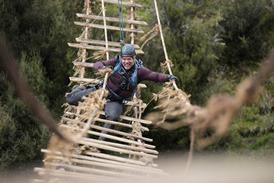
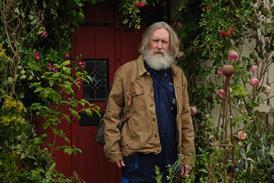
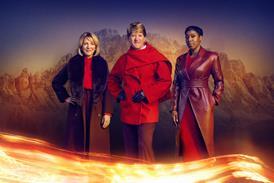







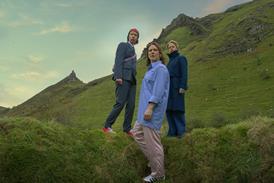


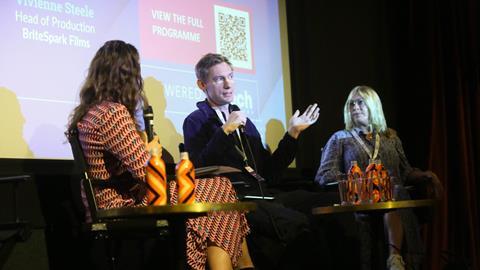






No comments yet